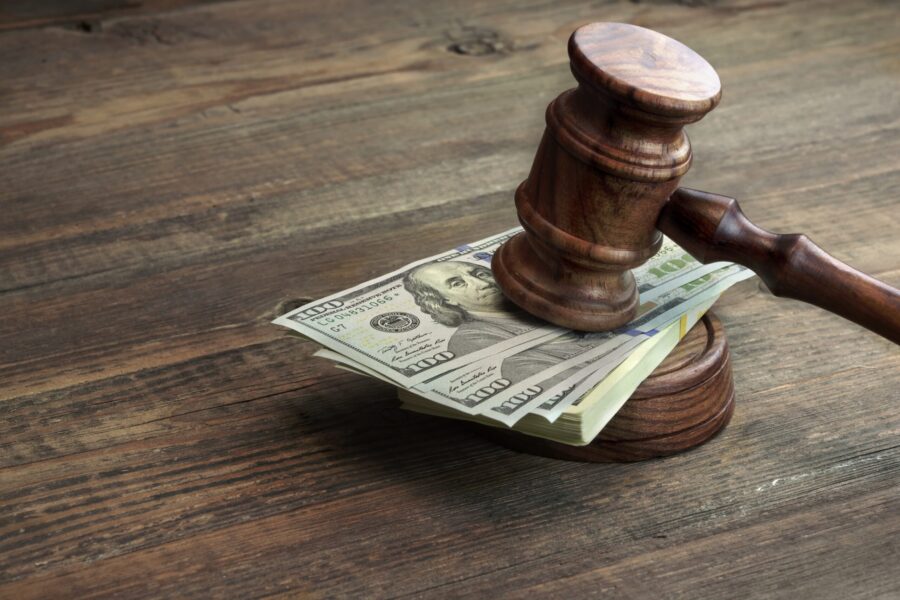
Can You Be Forced to Pay Your Spouse’s Legal Fees in Divorce?

Navigating a divorce is never simple. It comes with emotional, logistical, and financial challenges that can feel overwhelming. Among the many concerns individuals face during a divorce is the question of legal fees. More specifically, people often want to know, “Can I be forced to pay my spouse’s legal fees?” For those going through divorce proceedings in Manhattan or greater New York City, understanding the dynamics of legal fee responsibility is crucial.
This blog will explore the general rules surrounding legal fee payments in divorce cases, exceptions to these rules, the specific approach taken by New York law, and how courts determine who bears this cost. By the end, you will have a clearer understanding of this nuanced issue and the steps you can take to protect yourself financially during a divorce.
The General Rule Regarding Legal Fees in a Divorce
The general principle governing the payment of legal fees in divorce cases is that each party is responsible for their own attorney. This precedent is rooted in the idea that divorce is inherently a private matter, and individuals must bear the costs of resolving their disputes. This default rule acknowledges that legal representation is a choice, and each spouse must take responsibility for selecting their attorney and paying their fees.
However, this broad guideline does not always apply. The complexities of marriage and divorce mean that situations frequently arise where one party’s financial circumstances significantly differ from the other. This leads to exceptions where the courts intervene to modify the customary approach.
When Exceptions to the General Rule Apply
While the expectation is that each party will pay their own legal fees, exceptions exist to ensure fairness in specific scenarios. For example, courts are more likely to intervene when there is a significant financial disparity between spouses. Should one spouse have far greater income or assets than the other, the court may require them to contribute to their lower-earning spouse’s legal fees.
The reasoning behind this exception is rooted in equity. Courts seek to ensure that both parties can access adequate legal representation when one spouse lacks the resources to effectively protect their interests. Without such intervention, a higher-earning spouse might use their financial advantage to overpower the other during legal proceedings, leading to an unjust outcome.
Additionally, exceptions may apply if one party’s behavior during the marriage or the divorce process has been particularly egregious. Situations involving deceit, hidden assets, financial misconduct, or attempts to delay proceedings may prompt courts to shift the responsibility for legal fees onto the offending spouse.
How New York Law Addresses Legal Fees in Divorce
New York law takes a structured and considered approach to the issue of legal fees in divorce cases. Specifically, Section 237 of the Domestic Relations Law governs this matter. Under this statute, courts have the authority to order one spouse to pay legal fees to ensure both parties have adequate financial resources to participate in the case.
New York’s laws recognize that unequal financial circumstances can create an unjust power dynamic, leaving one spouse unable to secure qualified legal counsel. To prevent this, the law explicitly allows courts to direct the wealthier spouse to contribute to the legal fees of the other. This practice is intended to level the financial playing field and ensure fairness throughout the legal process.
One of the unique aspects of New York’s legal framework is that the court may issue a temporary order regarding legal fees during the early stages of the divorce. Known as “pendente lite” relief, this temporary arrangement ensures that the financially disadvantaged spouse can retain adequate representation throughout the proceedings. Any payments ordered under pendente lite arrangements do not necessarily dictate how final costs will be distributed.
The Court’s Discretion in Determining Legal Fees
When a dispute arises over legal fees, New York courts are granted significant discretion in resolving the matter. Judges weigh a variety of factors before determining whether one spouse should bear some or all of the other’s legal costs. This discretionary power allows courts to tailor their decisions to the unique circumstances of each case.
One of the critical reasons courts maintain this discretion is the inherently variable nature of divorce cases. No two divorces are identical, and the financial and emotional dynamics between spouses can vary widely. Therefore, it is essential to give the courts flexibility when deciding legal fee arrangements, particularly when inequity may otherwise arise.
How Courts Evaluate Legal Fee Decisions
Judges do not make decisions regarding legal fees arbitrarily. Courts in New York use several guiding factors to determine whether one spouse should contribute to the other’s legal fees. These factors include:
- Income and earning capacity. Courts assess each spouse’s financial resources and their ability to pay for legal representation. Significant disparities in income often result in decisions favorable to the less financially equipped spouse.
- Contributions to the marriage. A judge may consider the contributions made by each spouse during the marriage, including financial support, caregiving, and homemaking duties.
- Marital misconduct. If one spouse is found guilty of financial mismanagement, hidden assets, or other improper behavior, they may be ordered to cover the other’s legal expenses.
- The complexity of the case. If a case involves disputes over complex matters such as high-value assets, businesses, or child custody issues, the court evaluates the financial strain associated with prolonged legal representation.
- Duration of the marriage. The length of the marriage may also influence the court’s decision. For instance, short-term marriages with fewer shared resources may result in different outcomes than long-term marriages with intertwined finances.
By evaluating these factors in the context of New York’s domestic relations law, courts aim to uphold justice while ensuring neither party is unduly disadvantaged.
Protect Your Financial Interests with Professional Advice
Divorce law, especially regarding legal fees, is highly nuanced in Manhattan and throughout New York City. While the general rule is that each individual is responsible for their own legal fees, there are clear exceptions that the courts can invoke to maintain equity. Whether these exceptions apply will depend on financial circumstances, marital history, and any misconduct that may have occurred.
If you are navigating a divorce and are unsure about your potential obligations regarding legal fees, working with an experienced attorney is critical. The Mandel Law Firm specializes in guiding clients through the complexities of divorce proceedings. Our team provides tailored advice and will advocate for your best interests every step of the way.
To schedule a consultation with one of our skilled attorneys, call The Mandel Law Firm at (646) 770-3868. By enlisting the guidance of a seasoned legal professional, you can approach your divorce proceedings with confidence and clarity.











